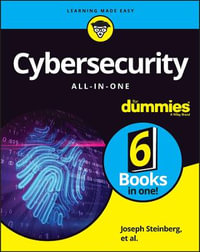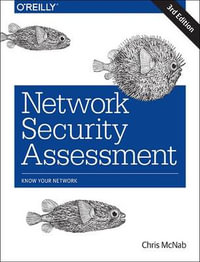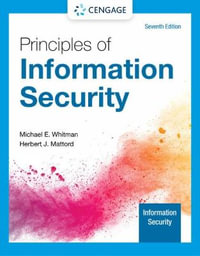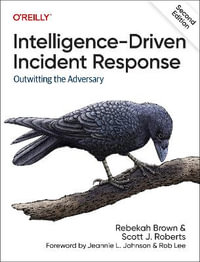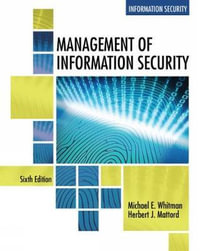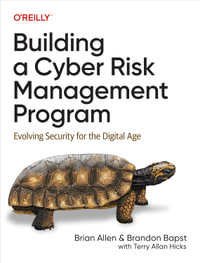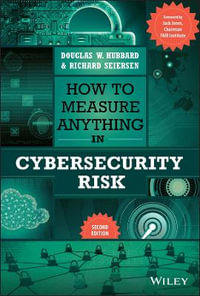If you want to tackle the problem of information security, you cannot rely on the help of technology alone. Information security breaches tend to occur as a result of human, as well as technological, failings. However, the human factor usually receives far less attention. Training Computer systems are complex, so people who work with them often need to be trained in how to use them correctly. This applies especially to your company s information security. The loss of a memory stick by a careless employee, or the downloading of a file that contains a virus, may be all it takes to cause a security breach.
This book offers you practical advice on how to develop an IT Induction programme for your staff that can help safeguard your business information. By providing your employees with simple instruction in good IT working practices, and by making sure they know what is expected of them, you can strengthen your company's information security and reduce the risk that your data will be stolen or lost.
Encouraging good corporate working and a strong sense of responsibility are, the author argues, essential for the protection of your business information. She shows you how to strike the right balance in your approach to staff training, thereby enabling you to provide your employees with an IT Induction that is at once informative and accessible. Benefits to business include:
- Reduce the likelihood of a damaging security breach. Putting in place a programme of IT Induction will help ensure that your company s staff are following information security best practice. Educating employees in good IT working practices will help them to avoid the errors that might otherwise put your organisation at risk.
- Protect the company s reputation. The damage an information security breach can do to your business goes beyond the initial cost of clearing up the mess. Without proper staff training, the danger is that theft or loss of data will damage your company s reputation. You need to provide your staff with a proper IT Induction in order to preserve good relations with your customers.
- Avoid legal complications. IT offers business new, less formal means of communication. Employees write e-mails in a different style from the way they write letters. However, contracts can be made or broken via e-mail, and e-mail correspondence can be cited in litigation. An IT Induction programme will give your staff the appropriate guidance on e-mail communication with the clients or business partners of your company.
- Manage employee working practices. Laptop computers and broadband mean that for many employees, the boundaries between work and home are becoming blurred. If you allow your staff to mix and match between working in the office and working from home, you need to make sure they know what they have to do to safeguard your firm s data both inside and outside the office.
Author Biography
Valerie Maddock has over 35 years experience in IT which started at Leeds University where she was involved in cosmic ray research analysis. Since 1975 she has been engaged in a range of information management, teaching and support roles in the public sector. She joined the IT department of The Salvation Army in the UK in 1996 where she established an IT Learning and User Support unit to serve the organisation's growing user base, and continues in this role today. Valerie graduated from the Open University with a Computer Science degree and has since gained a Post Graduate Certificate of Education, a Diploma in eLearning Management, various Microsoft accreditations and a Masters in Education (eLearning).
She is also a Member of the British Computer Society, a Certified IT Professional and a Member of the Institute of IT Training. Valerie introduced IT Induction into The Salvation Army at an early stage in her role, and her continued passion to develop flexible and innovative learning opportunities for the staff she serves has led her to develop an online IT Induction programme that best fits the changing needs of this Christian charity. As a consequence of this work, Valerie was an Individual Excellence Finalist in the BCS & Computing UK IT Industry Awards 2009 for the category IT Service and Support Professional of the Year.

